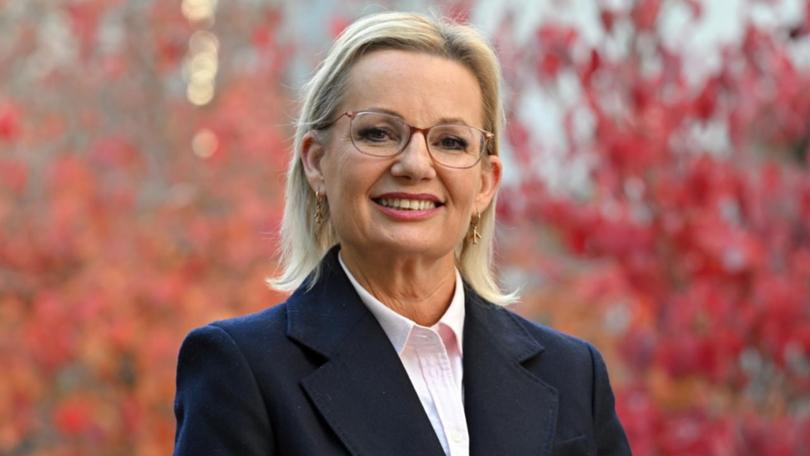Sussan Ley: Liberal Party’ first female Federal leader could face 'glass cliff'
Pressure is mounting on Federal Liberal Party leader Sussan Ley, who risks falling victim to an unwanted phenomenon amid turmoil in the party's ranks.

The first woman leader of the federal Liberal party could be doomed to fail as she tries to rescue the party from one of its lowest points in the wake of the election.
After a close contest against ex-shadow treasurer Angus Taylor, former deputy leader Sussan Ley on Tuesday won the top job and a place in the history books.
While the milestone has been celebrated, her victory follows a brutal May 3 vote loss that decimated the coalition’s ranks, and some warn Ms Ley could be the next victim of a “glass cliff”.
Sign up to The Nightly's newsletters.
Get the first look at the digital newspaper, curated daily stories and breaking headlines delivered to your inbox.
By continuing you agree to our Terms and Privacy Policy.Coined by Australian National University gender equality expert Michelle Ryan and her research partner Alex Haslan in 2005, the term refers to a phenomenon where women, and those from minority groups, are more likely to be appointed to top positions during times of crisis, meaning they can be set up to fail.
On Wednesday, the Liberal Party’s federal vice president Fiona Scott was asked on national television how long Ms Ley would last as leader.
“I don’t know, I mean a day’s a long time in politics,” she told Nine.
“Well, you know - it could be a day, it won’t be a day. I mean, cheeky, but look you don’t know what the political tides will bring.”
Asked about Ms Scott’s response, Foreign Minister Penny Wong told Nine “ouch ... that’s not the most ringing endorsement I’ve heard but ... I’m going to leave it to the Liberal party to sort this out.”
With more than two decades of parliamentary experience under her belt, Ms Ley was “incredibly qualified” for the job, Professor Ryan said.
“But the timing definitely suggests that it’s somewhat of a glass cliff,” she told AAP.
“The fact that they’ve come out of an unprecedented loss at an election, and this is the first time a woman is leading - I don’t think those two things are unconnected.
“It’s also interesting that people that might have put themselves forward in a better time are not putting themselves forward now.”
The pool of Liberal leadership candidates was relatively small to begin with given the scale of the election defeat, but potential leaders such as Dan Tehan and Andrew Hastie were quick to rule themselves out of contention.
“The Liberal Party is under great scrutiny - there’s a lot of agitation,” Prof Ryan said.
“Whoever was going to take on this leadership position was unlikely to be prime minister.”
Conservative political parties across the world, such as the UK Tories, have been accused of placing women in glass cliff positions.
Theresa May became prime minister when her predecessor resigned in the aftermath of the UK’s decision to leave the European Union, and stepped down two years later after fierce criticism over her failure to deliver a Brexit deal.
“She’d done all the hard work of the negotiations with the EU, and then we had Boris Johnson take over,” said Prof Ryan, who lived in the UK during the period.
Asked about the glass cliff trend, Ms Ley did not accept it and said her appointment and agenda was about connecting and listening to women.
Prof Ryan also acknowledged this, noting Ms Ley’s election was not just a leadership issue, but part of the party’s efforts address its bleeding female support.
“The glass cliff makes it harder to succeed, but that doesn’t mean success is not possible,” she said.
Nationals senator Matt Canavan - who made a failed bid to topple his party leader David Littleproud to underscore his demand to drop the coalition’s 2050 net zero emissions target - said Ms Ley will have to “perform”.
“The pressure will be on,” he told Nine’s Today.
Ms Ley said on Tuesday that net zero would be “under review” alongside all of the previous coalition policies, while adding “there won’t be a climate war” within the party.
